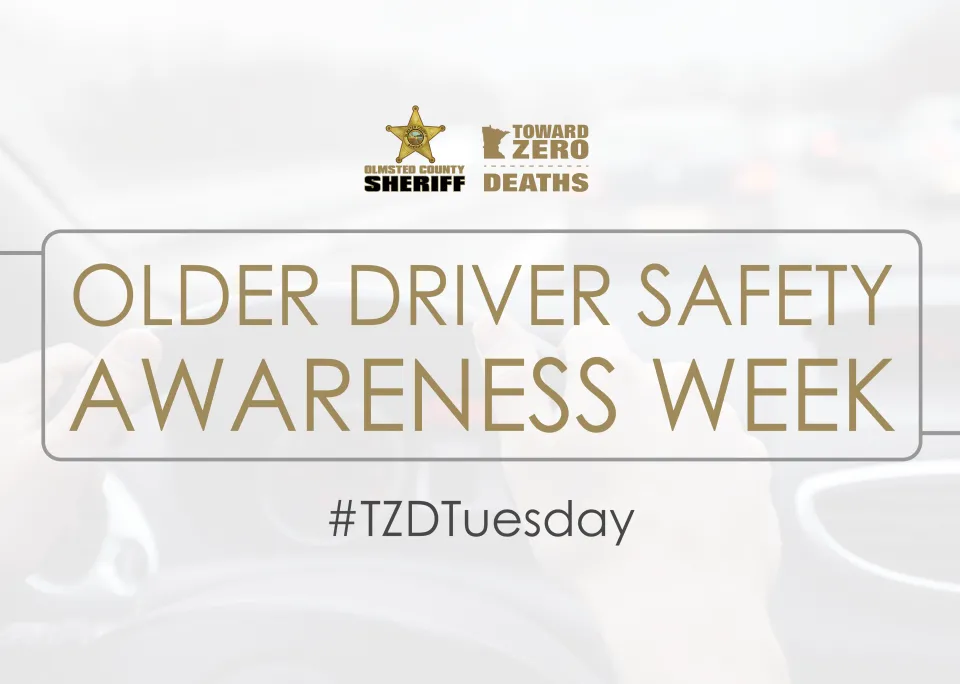TZD Tuesday - Older Driver Safety Awareness Week

Are you an older driver? If not, you probably know one — a parent, grandparent or neighbor down the street. Today kicks off Older Driver Safety Awareness Week. It’s an opportunity to remind drivers that simply getting older doesn’t mean it's time to hang up the keys, but it may be time to evaluate how you — or your loved ones — drive.
Older drivers are among the safest drivers on the road, however, according to NHTSA, they’re more likely to be injured or killed in a crash due to age-related fragility. According to the Minnesota Office of Traffic Safety, about one out of every four traffic fatalities in Minnesota is a person 65 or older. Studies by AAA show that seniors are outliving their ability to drive safely by an average of 7-10 years so we must plan for our “driving retirement” just as we plan for our financial retirement.
A person’s driving performance – not age – is what determines fitness to drive. As we age, our ability to drive safely is affected by natural changes such as declining vision, flexibility and reactions. We’re also more likely to take medication for a variety of ailments. They can be critical for our health, but they may also affect our ability to drive.
Talking with older people about their driving is often difficult. Below are resources and guidance to help you navigate this topic:
Medical Conditions and Adapting Vehicles
NHTSA - medical conditions
Educational videos available:
- Causes and Symptoms of Medically At-Risk Driving
- Other conditions such as Alzheimer's Disease, Severe Arthritis, Sleep Apnea, Stroke, Vision Disorders, Diabetes, and Parkinson's Disease
- How to Adapt Your Vehicle; how to adapt a motor vehicle to accommodate the unique needs of an older driver
- AARP CarFit is an educational program that offers older adults the opportunity to check how well their personal vehicles "fit" them. Currently due to covid there are no face-to-face CarFit checks but they have created a 45-minute on-demand workshop teach you what to look for when it comes to fit, the everyday household objects you can use to measure and make adjustments, and how this may keep you safer on the road.
Medications
- AAA’s “Roadwise RX.” It is a free online tool where you list the medications you are using and then it provides you information on how that drug or drugs may impair you.
Talking to Your Loved One
- Learning How to Understand and Influence Older Drivers will help you support an older driver’s needs and help put a “driving retirement” plan into action.
- If you have decided to initiate a conversation with an older loved one about driving safely, take these three steps:
- Collect information.
- Develop a plan of action.
- Follow through on the plan.
As difficult as some conversations may be, everyone benefits from starting these conversations earlier, before a crisis.
